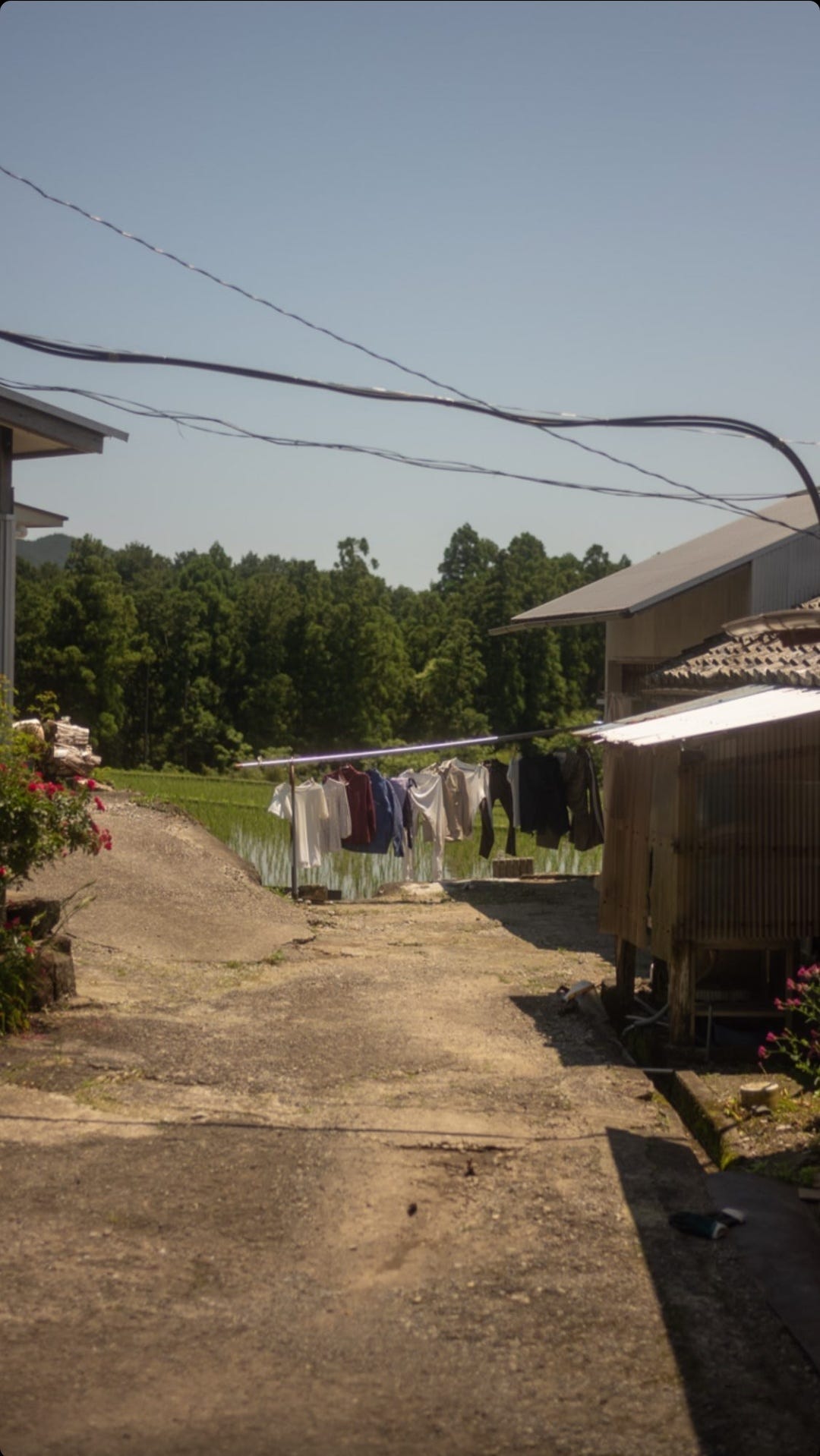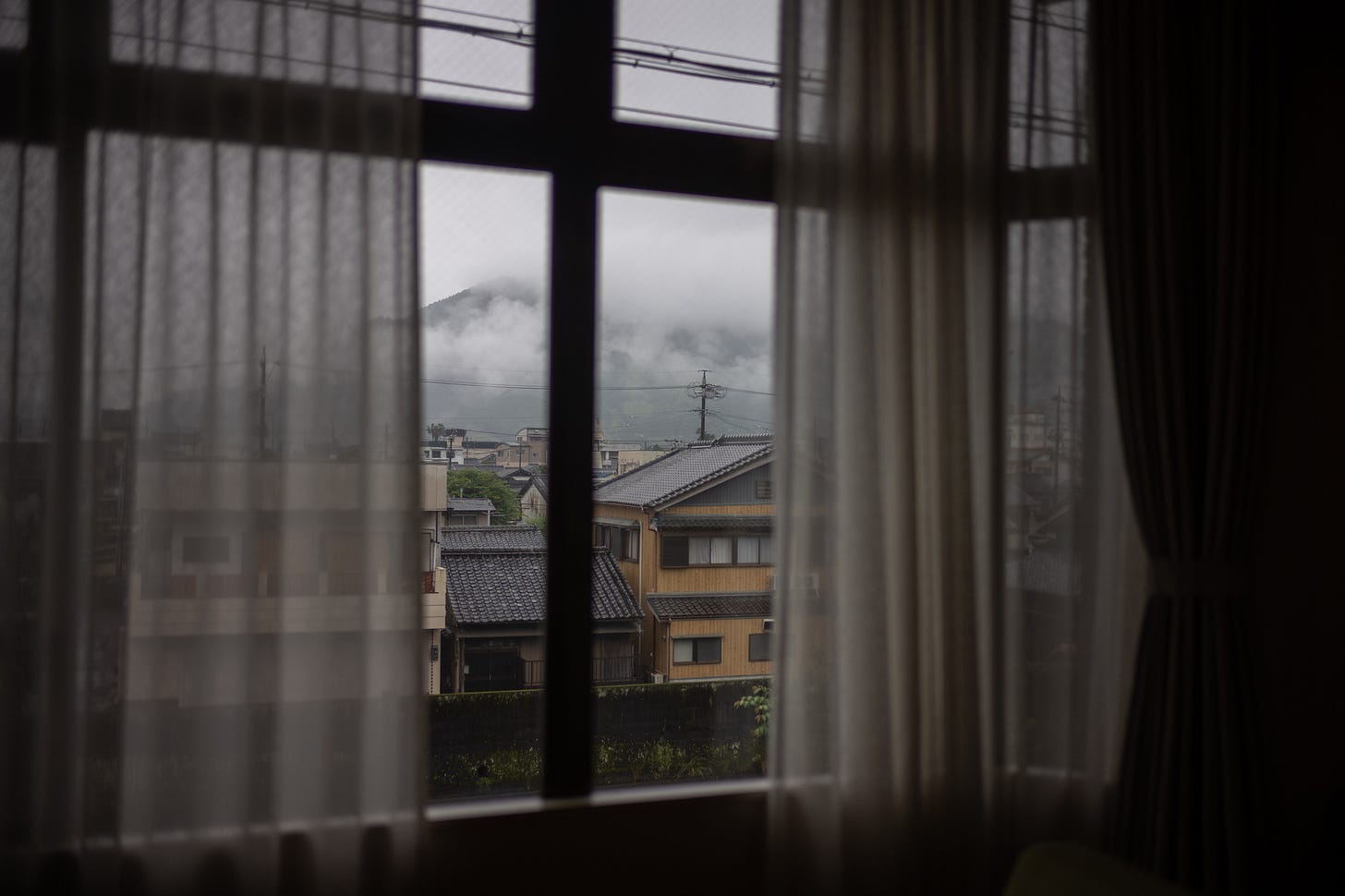On The Nostalgic Tragedy Of The Friends Reunion
The Friends Reunion 17 years after it ended, 27 years after it premiered, is like the show — deeply comforting, but incapable, or rather unwilling to dig deeper
I know this dispatch is a few days earlier than usual. But the F.R.I.E.N.D.S Reunion got my innards in a twist. By the time Monday morning comes around, you — I — would have moved on, anyway; your — my — attention span like the memory of a goldfish. Write to me what you thought of the reunion, because I — you — know you have an opinion.
Fucking nostalgia. Did you know it was considered a mental illness at one point? It literally translates to ‘the pain of homecoming’, and was associated with Swiss soldiers who yearned for the Alps. Today, the term is innocuously romantic or when politicized, a vermin of falsehood. Here, I’m mostly, entirely referring to the former.
The nostalgic tragedy of good television — and F.R.I.E.N.D.S, faults and everything, is great television — is to see the character and the actor become porous to one another’s influence. To see the actor is to see the character in flesh (which is why a great character is often a burden on an actor’s later filmography, unable to see Jennifer Aniston as anyone but Rachel), and so to imagine where the character would be today, 17 years after they became ether on the studio floor, is to almost always wonder where the actor is today.
The tragedy in all of this is time — wrinkles, family, addiction, loneliness, separation, awards, marriage, divorce, children, reaching an age where you have more to look back on than look forward to.
Something about the gulf between the footage shown during the special — of the old times, their portfolio photos as they were being cast, broke, disillusioned, beautiful, busy — and them as they are today — Botox and beauty intact, largely — was gutting. When asked by James Cordon where these characters would be today they gave convenient, kind answers — still married, still laughing at each other’s jokes, encouraging children to be okay with the inner weird, selling sandwiches in LA, and in the case of Ross and Rachel, perhaps sti cutting each other's sentences. To not disturb or unravel the ending that was. But we knew all their glossy falsehoods for what they were anyway. We had seen them, the actors, wrung through life. Why would the characters be spared the grind, then?
This similarity of character and actor, in the reunion special, was chalked off to the great casting decisions, which no doubt, were great — the actors gravitated towards parts that were a lot like them. But there is also the fact that the actors, also executive producers on this special, were paid $2.5 million each to participate in this “unscripted” special. $2.5 million dollars just to be yourself? (They certainly created the illusion of it with the women walking in with their handbags or coats folded over their arms to give the sense that they just walked off the streets into the set) Money bastardizes everything, weaponizes everything. Then why not nostalgia?

Friends came slightly off-center into my cultural radar. It used to play on television, random episodes, and it never struck me to binge it till much later — after One Tree Hill, after Gossip Girl. It became part of that hazy sludge of sitcoms — How I Met Your Mother and later Modern Family. For so many of my friends though, Friends was an instrumental introduction to the American life — the unfenced 20s of sex, love, friendship, and coffee houses — and so it sort of became a cultural touchstone for them, adding to its impact as solid entertainment. For me it wasn’t that. The allure was the simple joy of seeing characters, all of whom you like or dislike, but love anyways. I watched it in scraps, episodes here and there, without following the storyline neatly. So I wasn’t largely invested in these characters’ story either. Just the idea of them — as friends. (I like this reasoning because it doesn’t read too much into my fondness for the show. Also because, it’s so easy to express love as exaggeration, appreciation as platitudes, and I think the internet has had enough of both this past week leading up the reunion episode’s release.)
There was a startling moment in the reunion episode where co-creator Martha Kauffman notes that the show ended when it was supposed to end because once family comes into the story — kids, kindergarten, marriage, mortgage — the story can no longer be about friends. What she said reminded me of a handsome uncle of mine who refused marriage through his 30s, and when I asked him about this decision, he was clear that he had friends for companionship and lovers for love. Why marriage then? Last year I heard he was looking for brides. Mother sighed as though this was inevitable — all his friends were not only married, but also parents. The schema of life had flipped, its hierarchies of joy now superimposed with that of duty, muddling, confusing one for the other. How could friendship survive this?
Again and Again and Again
I find re-watches fascinating because for so long that is exactly what I used to do — up until the first year of having Netflix and Amazon Prime accounts— and now I cannot imagine doing it. There is something off putting about being this creature of repetition and I don’t know how much of it has to do with my job — to keep abreast of latest shows and trends — and how much it has got to do with the guilt of having a catalogue at my disposal. But at some point the desire and labour to embed myself in newer worlds was more exciting than plonking myself legs apart, watching the same characters do the same thing they did when I watched them last. (Don’t Freud this and call me adventurous.)
There was a time, however, when I moved to Calcutta for a month’s internship, living in a rented room of an imposing but loving woman’s bungalow with no internet, working in a dusty library with an aged computer system. I had a laptop, but it was pretty much useless, except for the word documents I would use to compile notes and the one downloaded film, OK Kanmani. That’s all I watched the whole month — lunch, dinner, weekends. Again, and again, and again. A guy I knew pushed this to a logical extreme with Modern Family, where it would just play all the time, like ambient music.
Derek Thompson in a piece for the Atlantic gave four possible explanations for this loopy behaviour — coming back to what we know, to experience it all over again: habits, addiction, rituals, status-quo bias. The last of which means “that people tend to stick with previous decisions, because the cost of coming to a new decision is mentally exhausting.”
And so Friends keeps trending on Netflix. Over $400 million are paid by HBO to acquire it for their platform, and when HBO launches in India that migration of subscribers is probably imminent. I wonder if one generation removed, the show will still hold. The kind of generation that is radicalized on the faux realism of Tik Tok. Would they understand wooden sets and live laughter tracks?
But, Flaws!
For some reason — actually no reason at all — I was watching Friends last week and the episode the algorithm or my watching history pulled up was the one with the routine. (I told you, I watch it in scraps, there are probably still episodes in the nooks and crannies of earlier seasons that I haven’t watched) A few days earlier I was trying to convince a friend that the humour of Modern Family isn’t offensive, and so that conversation was playing in my head when I noted the one black side-character in this episode — the oversexed twerking woman who is paired with Joey on the dance floor. I laughed, and I thought Oh! Well, was that a racial blind-spot I laughed at?
This often happens with me — I often find myself laughing at a joke made in a limited, problematic context, knowing it is a limited, problematic context, and I feel like knowing it isn’t enough, that I need to be physically repelled. But what if my gut reaction isn’t disgust? I laugh, then muffle, and think through it, and move on.
Everyone has a different threshold for repulsion, and it’s easy to feel shame for not having it low enough, conflating that with the limits of a moral compass. I find this scary because like a slippery slope argument, it lends itself easily to logical extremes. There will always be a bridge to cross between what is and isn’t permissible — the mismatch between one’s intentions and one’s intuitions.
(Of course the show was not only unable to but unwilling to get into the weeds of the demographic and psychological complexity that they eluded. Kauffman, a Jewish woman and David Crane, a gay man, are both white. They noted that this show came out of living in New York City, to snatch from their life anecdotes, names, stereotypes and lessons and calcify them into a sitcom format.)
See, the intention is there — knowing that David Schwimmer gave a hand-waving response to the whiteness way back in the 1990s in their Rolling Stone cover, acknowledging yet dismissing it, the Friends lawsuit that alleged sexual and racial harassment, knowing Fat Monica jokes aren’t funny (despite laughing at Instagram influencers dancing around dressed in sumo wrestler blowups), knowing that Chandler’s trans father was hauled over the bigoted comedic coal.
The impact, however, is often assumed to be unilateral or homogenous. I find some of the jokes in Friends homophobic, and yet never felt insulted by its gay jokes. Some people will call this internalized homophobia. Perhaps. But I can only speak truth to my feelings and when they don’t bridge with my thoughts, I must flag that as well. And to chalk that bridge to an academic sociological term is lending it a neat determinism that just doesn’t exist in reality.
It’s easy to look at Super Deluxe and say this is great trans representation (despite not casting a trans person) while Kanchana was pushing the transgender community back into the stereotypes. But as I noted here, there were people within the trans community who felt the opposite, preferring a fun stereotype over an over-serious figure of tragedy porn. To point out the flaws in intention is not the same as pointing out the flaws in impact, because the latter is always more diffuse, less easy to pin down, more wracked by the intersection of class, caste, race, gender and sexuality. (It’s the difference between production and reception — the onus of bigoted content is always convenient to locate in the producer, and harder, more complicated when it comes to the receiver, because the producers are so few, it’s easier to concentrate blame there.) Even with Friends, for example, the community’s reaction ranged from the abhorrent to the indifferent.
Which is why the reunion’s decision to show millennials across the world talking about why they loved the show was an easy solution. They had Africans, Indians, Koreans, Europeans, lesbians, single-mothers, speak of what the show meant to them. This was brilliant because it simultaneously brought up the global impact of the show while also short circuiting any criticism of its blind-spots. So what if the show was homophobic? We have lesbians here who grew into their identity with this show. End of story. Not enough? Certainly. (The transphobia is a sticking point even among its own cast) But I was impressed by this sly combating of predicted criticism.
The bigger blind-spot I felt was the lives of the actors. In the special Mathew Perry noted that when they would perform in front of a live audience, while the experience was rejuvenating and intense, it was also — and he uses this word — debilitating, almost lending life the quality of a nervous breakdown. This was swept under the rug of infectious, charming laughter. Perry who has been open about the glittery, heady quicksand that fame can be, in an interview with NYT, noted, “When [success] happens, it's kind of like Disneyland for a while. For me it lasted about eight months, this feeling of ‘I've made it, I'm thrilled, there's no problem in the world.’ And then you realize that it doesn't accomplish anything, it's certainly not filling any holes in your life.” He checked himself into a rehab in 2001.
When asked if they call each other, he joked or he commented (we won’t know) that no one called him. Again, this was swept under the rug of laughter. For everyone else, nostalgia seemed like remembering a good time, but for Perry, I don’t know, it felt like what Michel Chabon called “the consciousness of lost connection”. There was something sad. Even Matt LeBlanc — married and divorced — struck a melancholic figure, making fun of his own size, feeling that everything has grown small compared to him. How do I not see Joey in him, diminished in all but charm?
This week I wrote a lot about Kala, the film I referenced in my last piece on cinematic style. A wild vs wild home invasion film, it was so rooted, visually and sonically, I did a piece on both aspects. I wrote about its kinetic visual beauty, curating 25 frames from the film. I also spoke to Dawn Vincent who composed both the sound design and background score for the film. I wanted to ask him how he created the various sounds of the film. Some of his techniques included using dosa batter and having actual men hit each other with wooden logs to record the sounds. This is the piece — if anything I hope Vincent’s sweetness comes across. When I sent him the piece, he replied with a big heart emoji.
I also reviewed Pedro Almodóvar’s short film The Human Voice that is now finally streaming in India — on Book My Show. I wrote about how I wanted to lick — yes, lick — the screen, so tactile and sensual the film was. Empty, sure. But sensuous, too.


